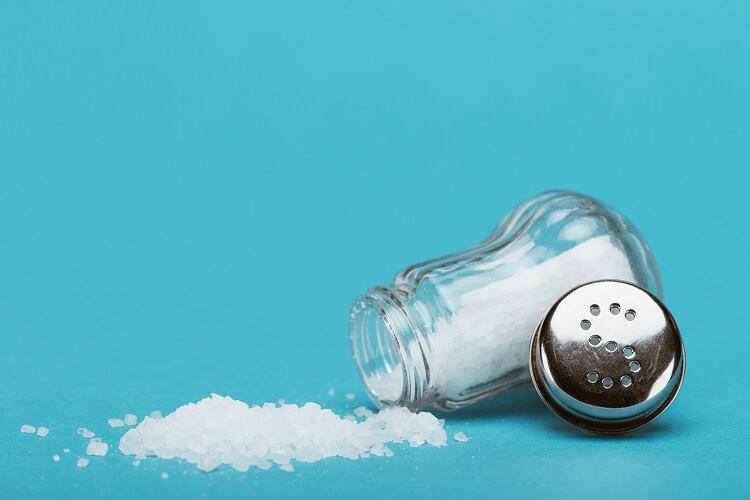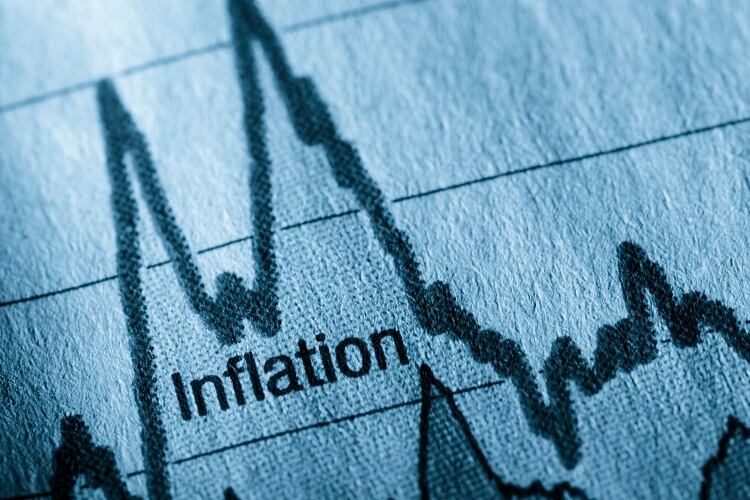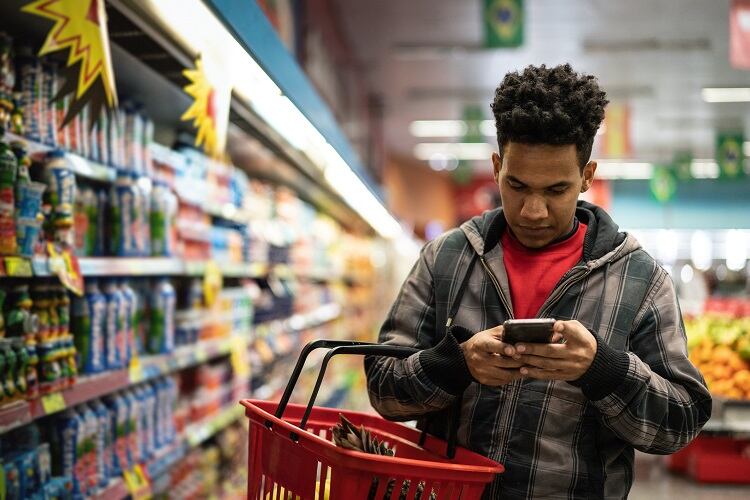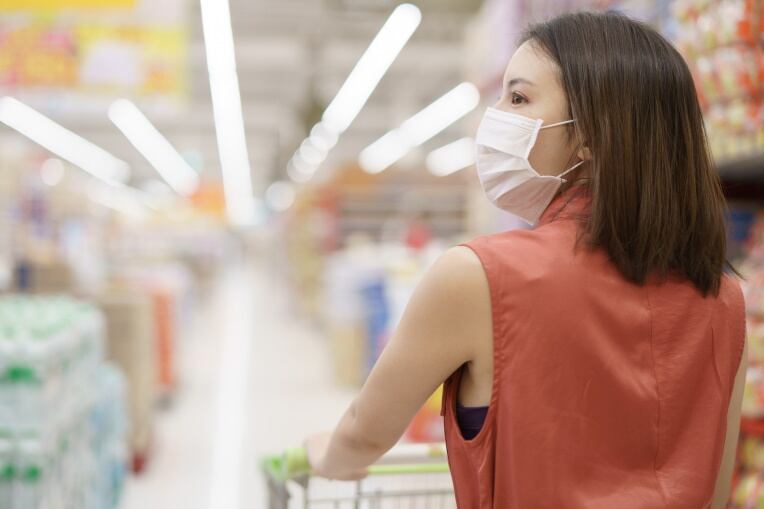Kerry Group takes consumer insights seriously. To ensure innovation aligns with consumer demand, the taste and nutrition company leverages a suite of insight tools: ranging from trendspotting with AI, to surveying consumers and examining cross-category trends.
In recent years, examining consumer insights has been particularly ‘fascinating’, according to David Deeley, Insights Manager, Europe, at Kerry.
“In the last few years there has been large-scale disruption, and that disruption has led to a huge change for consumers,” he told press during a media event at Kerry’s Global Technology and Innovation Centre in Naas, Ireland.
“From an insights perspective, it’s been fascinating trying to navigate that world.”
From macro to micro, Kerry’s Deeley, together with CEO Edmond Scanlon, outlines some of the drivers ‘shaping our world’.
‘Functional upgrades’ to food and drink
Taste and nutrition-focused Kerry, which also works across health and biopharma sectors, has observed an ‘element of pill fatigue’ amongst consumers. “All the research we’ve been doing suggests to us that people would prefer to take their supplements through food, rather than through tablets,” CEO Scanlon told journalists.
“Building more healthful ingredients into everyday food and beverage products seems to be what consumers are looking for. We see this on a global basis.”
Deeley, too, noted the trend for ‘healthy’ food and drink accelerate during the pandemic. While not technically a ‘new trend’, since ‘it was around before the pandemic’, Kerry has observed it evolve into a more ‘holistic’ approach: these days, mental wellbeing is also being considered by consumers.
“We’re seeing that a lot of people are talking about burnout…that people’s mental health is being negatively impacted. We’re seeing that manifest hugely in the market, in terms of products that are available…”
For Kerry, this trend for ‘functional upgrades’ is a sticking point. The company expects consumers will seek nutritionally dense food well after 2022.
Government-enforced reformulation ‘an unstoppable train’
Sugar taxes are nothing new. In soft drink, one of the first was implemented in Hungary in 2011, and every year more countries are following suit.
However, government interventions are increasingly targeting other nutrients, such as salt or fat content. In the UK, for example, new HFSS laws are due to be enforced. Kerry expects governments will continue to intervene.
“Yes, there is some delay [with the UK’s HFSS guidelines], but the direction of travel is laid out,” said CEO Scanlon. “I think this is an unstoppable train.”
As a result of sugar taxes, sugar content is reducing in products. And Kerry believes salt will follow suit. “One can debate whether government intervention is good or bad, or right or wrong, but consumers are looking for ways to feel better about the products they are consuming and I think governments are going to intervene.
“We’ve already seen it,” he continued, “but we do expect that to accelerate. We’re going to see it in salt next.”

At the same time, the insights team has observed macro trends within politics. “We’ve seen the rise of popularism, nativism, and nationalism in recent years,” explained insights manager Deeley. The company observed it ‘come to the fore’ around the financial crash of 2008, but noted it is still relevant today.
Sustainable consumption and the ‘perception of transparency’
At a macro level, climate change is another ‘force’ shaping the world. As Deeley explained, it effects ‘everything’, from geopolitics to economics.
“The climate crisis has only accelerated since COVID-19. Governments around the world are setting very strict targets, and those [positive] changes are being driven at a policy level. They’re also being driven by the fact that this is what the consumer wants to see.”
Indeed, demand for ‘sustainable’ products is on the rise. Consumers don’t just want to know about the health credentials of a product, they want to know that it was made in an ethical and responsible way.
Kerry has observed this trend in Europe. “We’ve already seen in France and other countries that [consumers] look at Nutri-Score on the one hand for the nutrition content of the product, but also at eco scores,” said Scanlon.
The taste and nutrition company has already noticed customers wanting to put both nutrition and sustainability credentials front-of-pack.
“I think that’s something that is going to continue to evolve… and I think consumers are going to like that. Whether they fully understand it or not, that’s another story. But they’re definitely going to like the perception of transparency… from both a nutrition and sustainability perspective.”
Demand for sustainable nutrition is ‘not going anyway’, agreed Deeley. “The climate crisis has really emerged front-and-centre and as COVID becomes endemic, these new behaviours that were formed during the pandemic are going to remain.”
More macros: from inflation to tech
Other macro drivers influencing consumer behaviour include inflation and technology. Kerry describes the current influx in inflation as an ‘inflationary breaking point’.
“There has been a perfect macroeconomic storm which has led to this. We’re seeing 8.1% inflation in Europe and 8.6% for food,” said Deeley.
So what does this mean for consumer shopping behaviour? Rising inflation is having a ‘huge’ impact on consumer behaviour and attitudes, we were told. “We’re seeing the result of that in [preferences] for private label, right through to [favouring] discounters.
“We’re monitoring that on an ongoing basis to see how it develops and what emerges over the coming months, and indeed years.”

Another macro driver here to stay is technology. “During the lockdown, technology was a pivotal connecting point for our personal and professional lives,” explained Deeley.
“Those behaviours are here to stay. They’re not going to move on, they’re fundamental to our lives.”
‘Sticky’ trends: from plant-based to snacking
In the category of trends expected to remain beyond 2022, Kerry places plant-based, snacking, and a ‘revaluated’ expectation from foodservice.
Snacking, for example, played a ‘pivotal’ role throughout the pandemic, noted Deeley. However, since lockdowns have lifted, this trend has not gone away. “What we’ve actually seen is that it’s become more important to consumers as they move back out into the world,” we were told.
“They’re busier and are looking for more flexible and even greater [snacking] occasions beyond COVID.”
Foodservice is another area Kerry expects to have altered due to pandemic-related restrictions. “After COVID, people have become more connected with food. They’ve become increasingly interested in the food that they’re eating,” explained Deeley.
This will lead to a ‘revaluated’ foodservice space, the insights manager predicted: “They want a different experience when they go out to eat and spend their hard-earned cash.”



